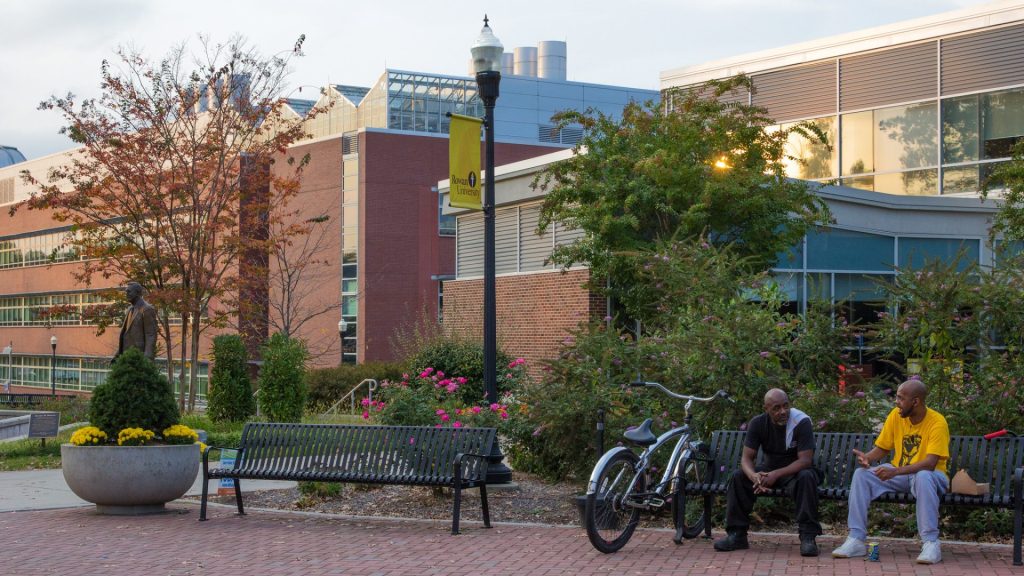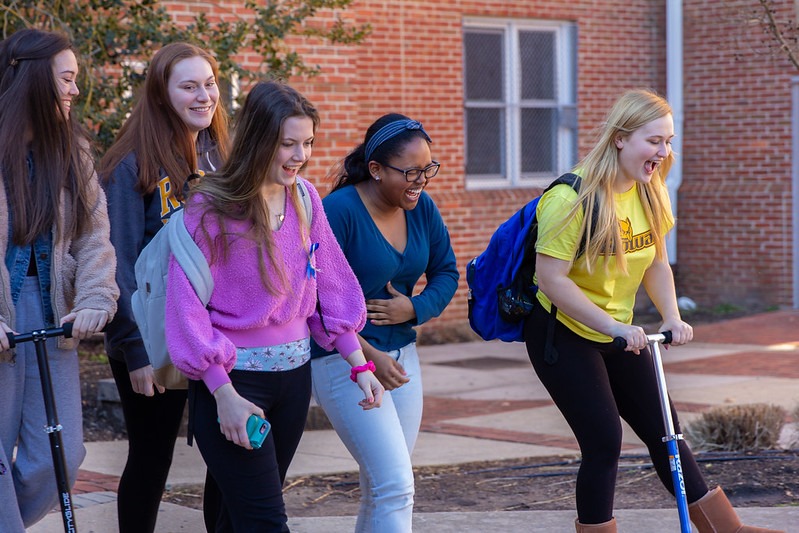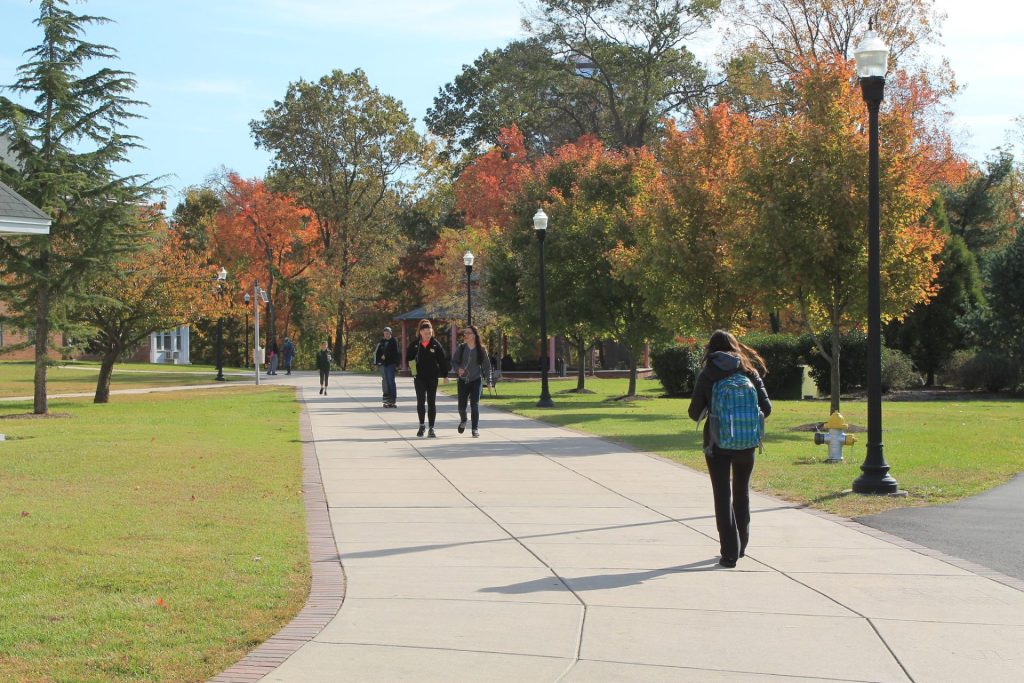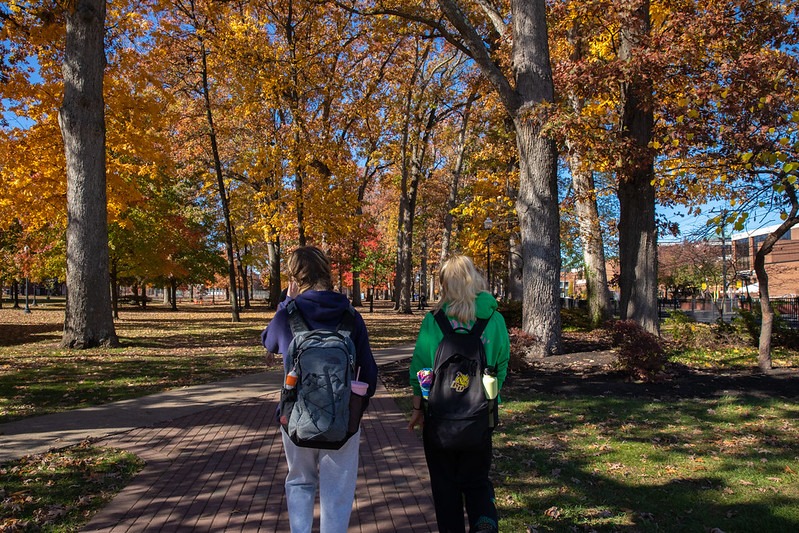The Transition from High School to College for Neurodiverse Students
A beloved and long-time valued leader of the Office of Accessibility Services at Rowan University, John Woodruff shares guidance for neurodiverse students and their parents on transitioning from high school to college.
How Accommodations are Different
Woodruff acknowledges how disabilities and their accommodations differ between college and K-12 education. He says, “We do know the reality is that parents or other adult caregivers have had to be the squeaky wheel in K-12. Our role at the university level is to work with parents still, but to help the student become that squeaky wheel for themselves. Within our role, we teach students how to become advocates for themselves, as adults.”
At the college level, students need to activate their accommodations by registering with the Office of Accessibility Services. “You drive the process,” Woodruff says.

Why to Register for Accommodations
His message to neurodiverse students who may consider letting go of their 504 and IEP accommodations as they start college is this, “We do not recommend you starting here without accommodations.”
He explains that every year he fields numerous phone calls and emails from students and their parents, many of their stories identical. They had 504 or IEP accommodations in high school, transitioned to their their first year of college, did not activate accommodations at the college level, struggled in the classroom and did not do well academically. Sometimes, scholarships are now at risk. Is it too late to register?
“No,” says Woodruff. “It’s never too late to register.”
New to Seeking Accommodations? You’re in Good Company
Other times, students who previously thrived academically suddenly do not once they start college. Naturally, both the students and their parents will be frustrated and search for answers. Poor performance is not from a lack of discipline or willpower, or a lack of caring, however. The highly structured and organized daily routine that high school provides can create a built-in coping mechanism for undiagnosed neurodiverse students. With that structure now dissolved, the student struggles. This is a common time for students to seek support through their family doctor or therapist. It is not unusual to receive a late diagnosis, or to first implement accommodations at the college level.

Almost 20% of Campus Body Is Registered
Just shy of 20% of the Rowan University student body is registered with the Office of Accessibility Services. This translates to more than 4,000 students. Neurodiversity is one of the most common reasons for students registering and seeking accommodations. “You are not alone,” says Woodruff.
The top five most common diagnoses that Rowan students seek accommodations for are: ADHD, autism, anxiety, depression and dyslexia.
Encouragement
“It’s confidential,” says Woodruff about the process. “The professor only gets your letter stating the required accommodations, not your disability diagnosis.”
Woodruff’s message to students with disabilities is one of encouragement. Speak up, request any needed accommodations, and then take full advantage of using all accommodations which you are eligible for. He shares, “I am convinced that all students with disabilities in college can be successful. If they are not, it is not due to their disability – it’s due to them not being willing to utilize the accommodations that they are eligible for to level the playing field.”

What Accommodations Look Like
While accommodations themselves are individualized by nature, for illustrative purposes a few more common ones include:
- Extended time for tests
- An alternative site for a distraction-free environment to complete assignments or take tests
- Audio recording lectures
- Use of laptop or tablet in class for note taking
Resources such as tutoring, academic coaching, writing center tutoring and academic tutoring also help to level the playing field, and are available for all students.
Transition to College Series – Before Starting College
The Office of Accessibility Services also hosts a transition to college series for college-bound students, their parents, and school personnel. They discuss the transition to college, differences between accommodations in high school and college, and college resources for students and parents. The program hires peer mentors who are neurodivergent, to provide support for the incoming students.
In addition, the program brings in staff from various offices across campus who are resources for students, such as the library, tutoring center and wellness center. “Letting them know about these resources, early and often, creates repetition that both the parents and their students need,” Woodruff says, explaining the intensity of the massive ‘to do list’ of items to prepare the summer before, to start college.

Early Move In for Neurodiverse Students
Another accommodation that Rowan offers is the ability for neurodivergent students to move on campus a week early. This additional transition time helps students to adjust to a new place, before they also adjust to a new schedule.
Woodruff says, “This my favorite: the peer mentors lead students on a tour of campus, with their schedules in hand, one full week before the campus gets too crowded. This helps students to see where their classes are each day and how they will get there. We even offer that a second time for students.”
How to Help Your Student Transition
Finally, regarding the advice he would give to parents of students with ADHD, Woodruff had the following to say: “I would have them, with the transition to college, have this student start doing things to be independent. Even if you’re helping them with the college application process or visiting schools for campus tours, have the student be an active participant in that. At home, teach your child the skills they will need to know once they live on campus, such as how to do laundry.”
Additional Student Wellness Stories
Keep reading student wellness stories to learn how Rowan Profs support their mental, physical and emotional well-being. Through Rowan Thrive, Rowan University provides a comprehensive framework designed to help students live in alignment with their values and cultivate resilience across six core areas of well-being.

